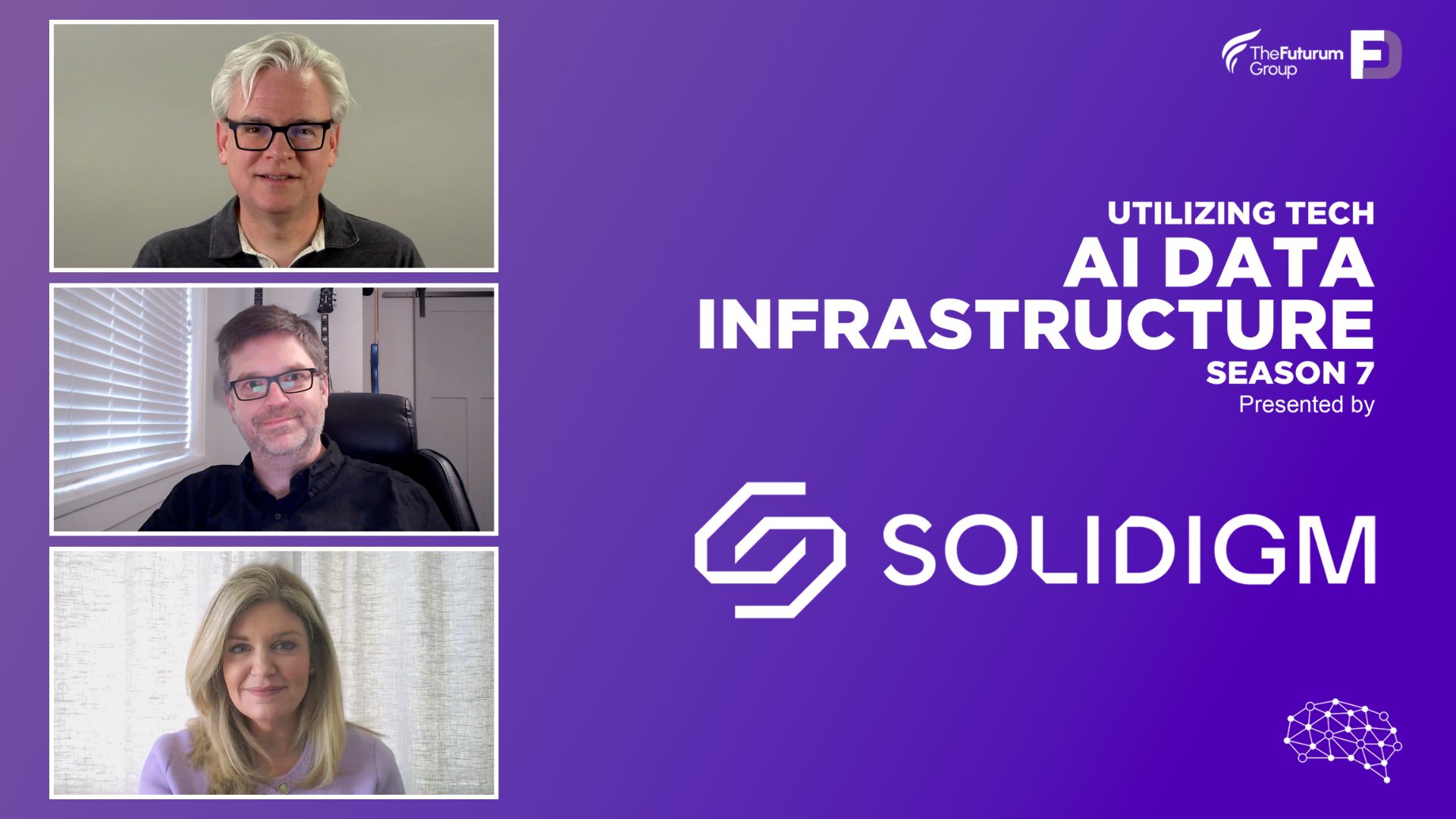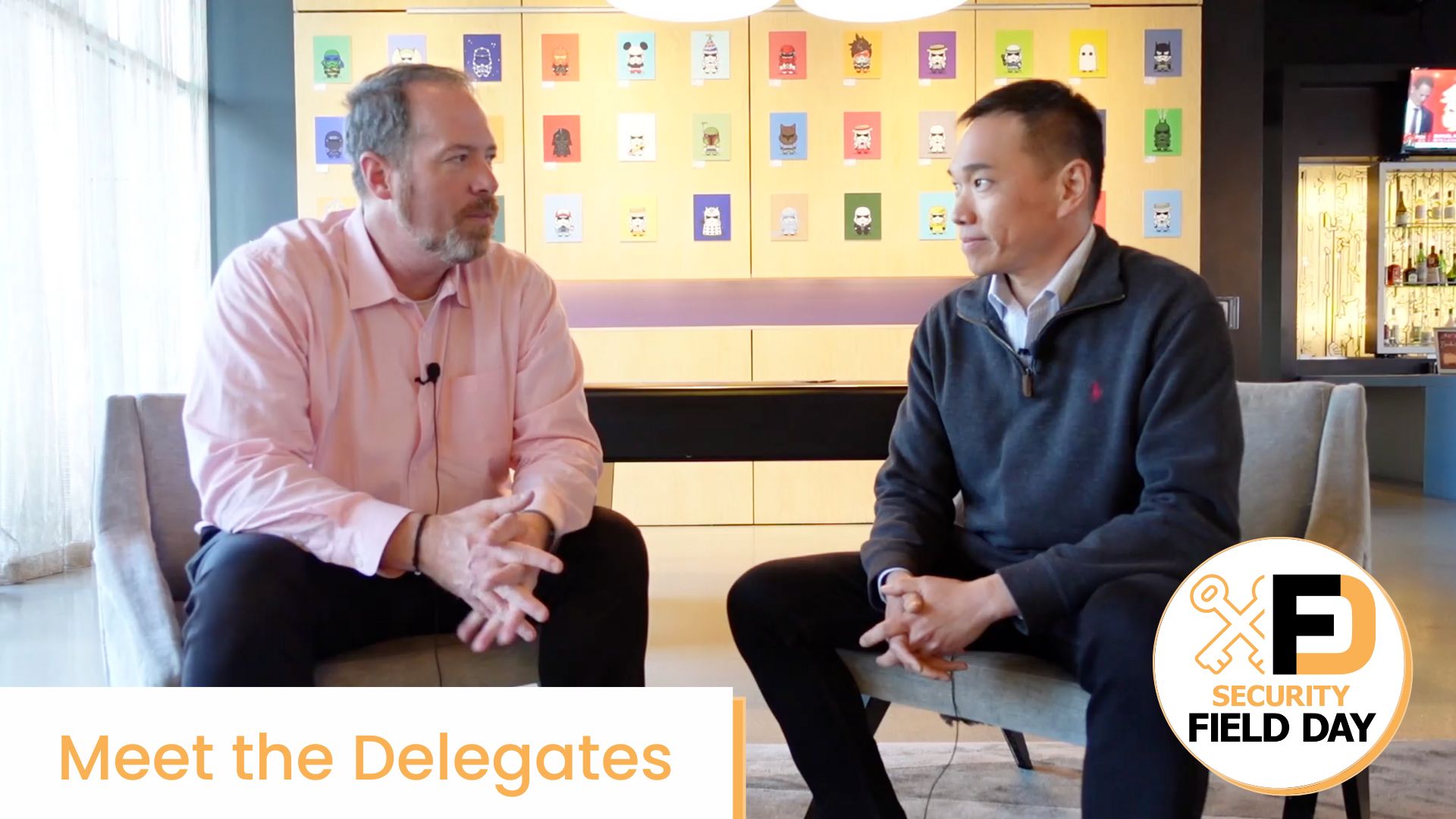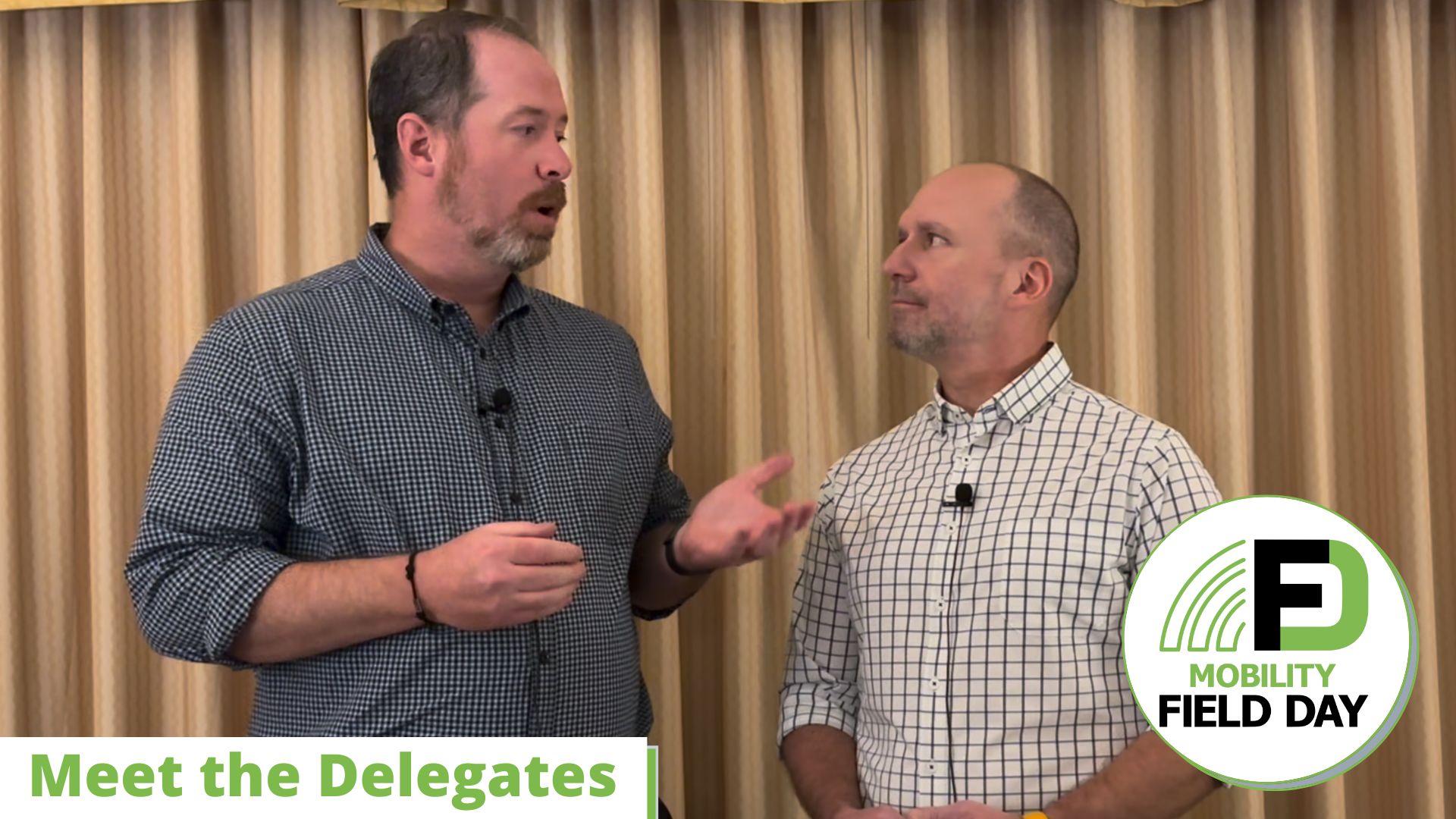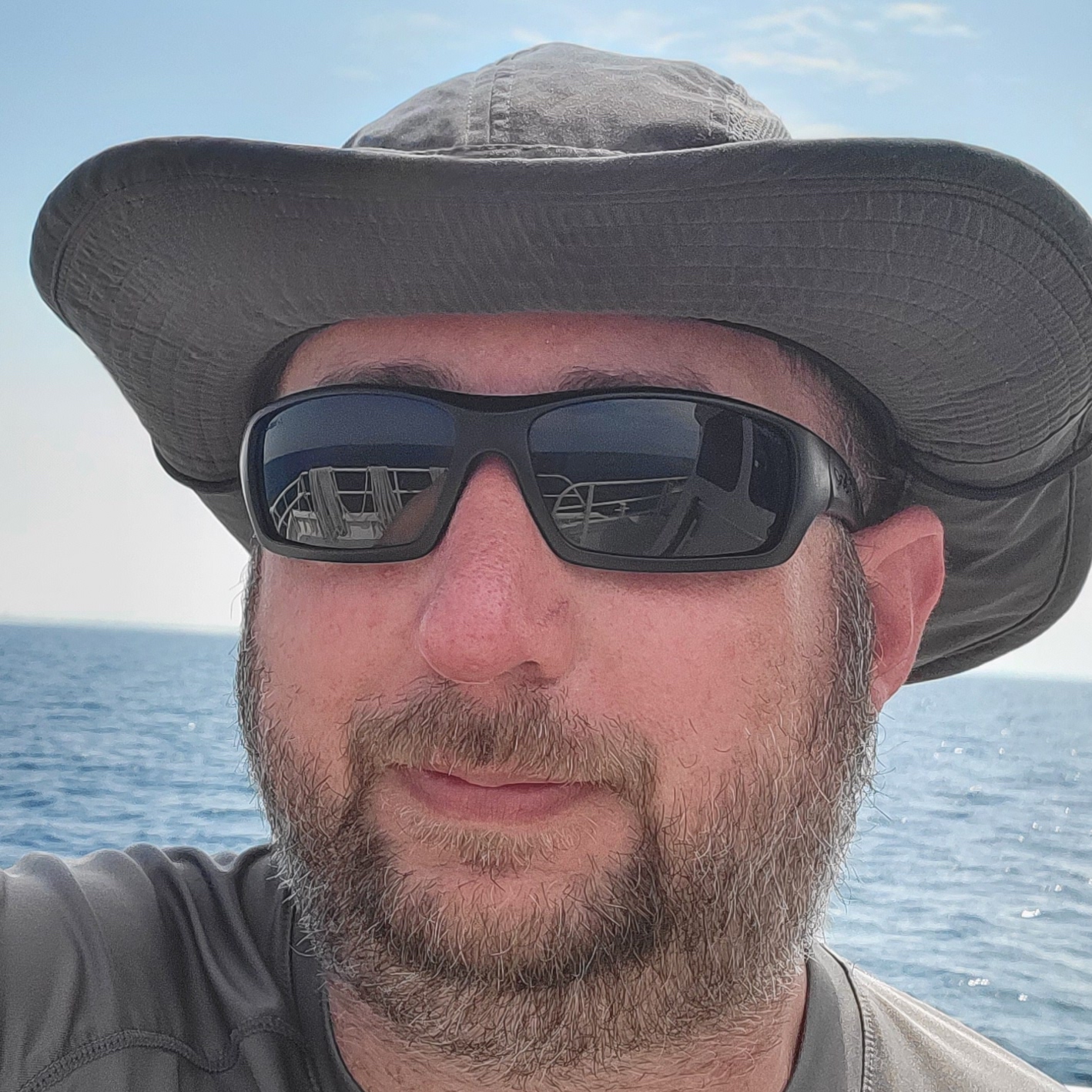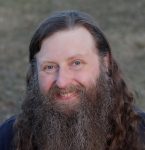
Last week we welcomed a new delegate at Networking Field Day 28: Dan Kelcher! Dan is a Enterprise Network and Cybersecurity Solution Architect. You can see more of Dan on his Twitter or on the Tech Field Day Website. Dan took some time to tell us a little more about himself – here is what he had to say!
How did you get into Technology and IT?
In the year 2000 <insert Conan meme> I was working at a hospital, and a coworker told me he was building a PC. With jaw agape I stared at this marvel of a man, master of technology. I had no idea that a lowly human was capable of such feats of wizardry. I started reading the ancient tomes. I learned about CPUs, AGP video cards, and DIP switches. I saved money (quite the challenge for a high-school kid).
Eventually, I bought the parts to build my first PC. I put it together, and fired it up… or well, tried to. It did not fire up. It did nothing. Luckily I was now an expert in all things PC, so I knew the problem was the PSU. I replaced it. I fired it up again for the first time, and by that I mean I tried again and failed. It must be the CPU!! A new CPU will fix it, so I bought one. Installed one. And miraculously, I failed a third time. Odd. Well, there’s nothing else it could be except the motherboard, right? I bought a new motherboard. I rebuilt the system with the new motherboard. Somehow this time I managed to fail for the fourth time. It was then that I realized the mistake I had made. The second power supply must have also been faulty. Darn the luck. I’ll get one more, and that will solve it. Only it didn’t.
This process continued until I had 2-3 versions of every component. I decided to lay them out on a table, and I was going to test out every possible combination until something worked. I had to have a working set in there somehow. In the spirit of efficiency I also decided I would save some time using a new trick I read about – short the pins on the motherboard for the power switch instead of putting everything into the case. This way I could quickly cycle out parts.
I put together combination #1, and fired it up. And it fired up. Wait, what??? IT’S ALLLIIIIIIIIIIVVVVEEEEEE!!!!!!!!!!!! No way! Finally, my luck had taken a turn! I shut it down, loaded my newly working build into the case, moved it to my desk and fired it up. But… it did not fire up. Uh…. That’s not how this was supposed to go. I decided I’d try shorting the pins again to see what happened, and it started up. After months of working, hundreds of dollars on parts I came to a realization. The case power button was bad.
At that moment I knew IT was the field for me. Never in my life had I put so much effort into something. Never had I faced so many failures and still kept coming back. Within months I was enrolled in an IT program to get my AAS degree.
What do you do now? Tell us a little about your current role.
I’m an Enterprise Network and Cybersecurity Solution Architect. I take the specifications from the customers and bring them to the engineers. I also work with customers to understand what those specifications should be. I try to understand what their problems and needs are, and how we can best solve their problems and meet their needs.
What are your biggest challenges?
Time/knowledge. In the IT world there’s a massive amount to know. There’s the different domains of network, security, wireless, storage, compute, virtualization, etc. Then each domain has vendors – Cisco, Juniper, Arista, Aruba, etc. Then there’s the different technologies – VXLAN, BGP, SNMP, etc. There’s products and licensing from each vendor that has different implications on the technologies supported… The list goes on, and on, and on. To make things even more challenging, all of that is constantly changing. There are new vendors, products, services, etc. Licensing models change.
It’s impossible to stay 100% current on all things IT. I’m always working to learn and stay current, and that will be a challenge for the rest of my career.
Where do you see IT going in the next 3-5 years?
There’s a few of today’s buzzwords that I see becoming mainstays in the future – automation, FSO, and hybrid cloud.
Automation is huge right now. Every vendor, every platform is working to add/improve APIs. The benefits of automation are near limitless. Automate the repetitive tasks and empower people to work on bigger, cooler stuff.
Another key area is Full-Stack Observability. Monitoring is now an ancient concept. Siloed information is not good enough. An IT team, and a business need to be able to understand how something like a failed link, or overloaded server can impact an application. More importantly, they need to understand how that impacts operations. Does it impact user experience? Does it impact revenue? Being able to see that data immediately is going to become more and more important.
Finally, hybrid cloud. For a while everyone wanted to send everything to the cloud. Then they found out that some applications don’t actually benefit from being in a cloud, or may even be worse off. I expect there will be a better understanding of when a cloud solution is best, but also when using on-prem datacenters or edge compute will be a better solution. Our tooling will improve to allow more seamless moves between edge, datacenter, and cloud deployments.
What was your first computer? What was great about it? What is your go-to computer now?
My first computer was an Compaq. No idea what the model or specs were. I was young, and it played Red Alert. That was enough for me.
Today, I use a machine I built a few years ago. I run large virtual labs (CML, GNS3, VMware, etc.) which meant I needed a huge amount of RAM. At the time, the only desktop CPU that could go above 128GB were the AMD Threadrippers. Which means I have a 24-core Threadripper and 256GB RAM. I also have 7TB of storage across three NVMe drives. It’s a beast of a machine and I can run pretty much any lab I can dream up.
How do you manage your work/life balance?
Working remotely has definitely improved the balance for me. Now I’m not spending hours stuck in my car each day. I’m also able to help out with shuttling kids to and from events mid-day. With the flexibility in my schedule it doesn’t bother me as much when I need to work late.
One other tip that I can give – Turn off push notifications on your phone. When you are not on the clock only check email when you want to. Don’t interrupt dinner because someone else decided to work late.
If you weren’t working in IT, what would you be doing instead?
Probably some other form of engineering or architecture. I enjoy tinkering, designing, and figuring things out.
What do you do in your spare time? Do you have any hobbies?
Spare time… heh. That’s funny. I like to throw large chunks of meat on a smoker. I have a drum set that collects dust. I used to play video games. Now life is mostly work, family, and the occasional book, movie or show when I can find the time.
What were you most excited about seeing at the event?
Nothing specifically. I was excited to generally see what different vendors were doing with automation and monitoring/observability. I think every presentation at NFD28 touches at least one of them if not both.
What is the coolest thing you’re working on right now?
Probably not the answer that would be expected, but my home office. I’m working on putting in a standing desk, LED channels, green screen, etc. With remote work being my new normal I decided it was time to upgrade the home office.
Who inspires you?
IT authors, bloggers, teachers, training content creators, etc. I wouldn’t have made it where I am in my career if it weren’t for the dozens of people that shared what they’d learned. I’ve resolved countless issues because someone else posted a solution in a blog or forum. Those people are the unsung heroes of the IT field.
As a child, what did you want to do when you “grew up”?
Astronaut, NFL player, construction worker, cop, robber, musician, monster truck driver, actor. I was all over the place.
What super hero movie character would you like to be and why?
Anyone that can control time or time travel. Dr. Strange, Thanos, Cable, Bishop, etc.
What is your favorite thing about what you do?
There’s two things, and they go hand-in-hand. The first is learning new things. In this field there’s always something new to learn. The second is teaching. What good is knowing a bunch of stuff if I’m not helping other people build their skills?
If you won the lottery and could retire, what would you do with your time?
Get a CCIE. Learn to play the drums. Cook. Start a non-profit focused on getting people into IT without the debt or headache from traditional methods.
Thanks for sharing, Dan! You can see Dan as a delegate in the videos from Networking Field Day 28!

